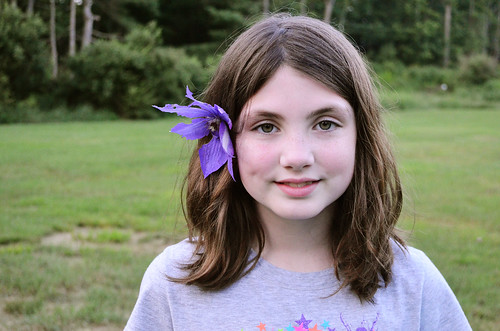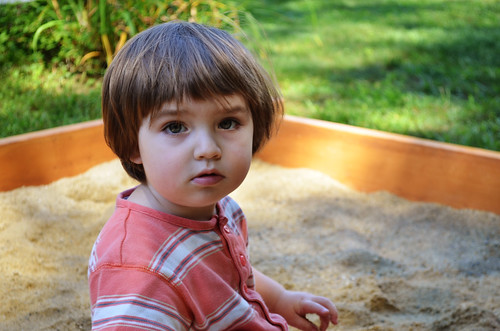The kids in our district went back to school today. But, not us! Oh, no, we are waiting until after Labor Day. That’s what we did last year and since that worked out well for us we’re doing it again. Lillia will be going to art class at the school on Friday but the rest of the week belongs to her. A last hurrah, if you will.
In the spirit of anticipation that this week brings I wanted to share some of my goals for the coming year, for both kids.
Goals for Lillia

— Learn the multiplication facts from 0-12.
— Continue to practice and become proficient at writing in cursive.
— Overcome fear of writing on command.
— Develop some coping strategies for when difficult problems arise.
— Work on developing independence & a sense of personal responsibility.
Goals for Zane

— Continue to develop vocabulary.
— Learn to identify more colors (he can do red, blue, and green).
— Work on potty training (yikes!)
— Read EVERY day; an adult reading to him, that is.
— Find opportunities for peer socialization.
I know these aren’t the loftiest goals but I am avoiding listing anything too specific here. Perhaps other goals will make themselves known as the year progresses, but I am trying not to have expectations that are too high at the outset. I learned a lot last year about what is and isn’t realistic, when it comes to academics as well as the homeschooling experience in general. I am certainly the type of person who likes to know what’s coming; the type of person who thrives on having it all worked out and written down beforehand. Well, last year taught me that most days aren’t going to look anything like they do on paper. Having a rough outline is great for staying on track (definitely important if there are certain things you really want to cover). But, trying to plan out the day by the hour is a waste of time. Some days there will be a cranky toddler who just won’t let you get anything done. Some days there will be an anxious tween who runs away at the sight of her math book. That is reality.
That having been said, I am so excited about this year. It may or may not be (though most likely is) my last year homeschooling Lillia and I want to really make it count (not just from an academic standpoint). I want to enjoy this year with her and not get too bogged down by the details. I think we are going to learn some cool stuff, and I feel surprisingly relaxed about the whole thing. This time last year I was a disaster area. Now that I’ve experienced a whole year of homeschooling and nothing terrible befell me or the kids, I can go into my second year without all of that baggage — the anxiety, the pressure, the fear of the unknown, the unreasonable expectations…
This year will be great.
